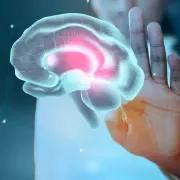Migraine Management: Effective Ways for Prevention and Relief
In This Article
Migraine Management: Effective Ways for Prevention and Relief
Elena
Updated on June 06, 2024
Medically verified by Dr. Arya
Fact checked by Dr. Pournami

Neurology
10 min read
We know that millions of people worldwide are affected by migraine, causing intense pain, nausea, and sensitivity to light and sound.
Those who experience migraine are affected with inability to maintain their day to day life since migraines interfere with their daily lives.
Are you someone who suffers from migraine? Does your migraine interfere with your day to day schedules ?
Are you searching for a remedy to manage your migraine? Then you have come to the right place
Karetrip is going to provide you with tips that help you manage your migraine both by preventing as well as bringing relief.
Let's get started.
Understanding Migraine
A Migraine is in a way a headache that can cause severe throbbing pain or a pulsing sensation, usually on one side of the head.
Migraine is often accompanied by problems like nausea, vomiting and extreme sensitivity to light and sound.
Migraines can last from hours to even days and the pain from these migraine attacks are so severe that it can affect your daily life.
Symptoms of Migraine
Migraine has through four stages, which are prodrome, aura, attack and post-drome. Every individual suffering from migraine may not feel all four stages.
-
Prodrome: You will feel things such as constipation, mood changes, food cravings, neck stiffness etc. two or three days before your migraine attack as a warning for the incoming attack
-
Aura: This can occur before or during the migraine attack , these are reversible symptoms of the nervous system. They usually cause visual disturbances which gradually builds up and will last up to 60 minutes
Some examples are :
-
Visual phenomena such as seeing shapes bright spots and flashes of light
-
Losing vision
-
Sensation of needles and pins in arms and legs
-
Numbness or weakness on parts of your body
-
Difficulty in speaking
-
Attack: A migraine attack usually lasts from 4 to 72 hours if untreated, how often it occurs will vary depending on the individual. During migraine you might feel pain in one side of your head, you will be sensitive to light and sound and will have extreme nausea and vomiting.
-
Post drome: After a migraine attack you might feel drained, confused and washed out for a day. Sudden movement after the attack can bring back the pain for a brief moment as well
Understanding and identifying Triggers
Have you ever thought about the reason that causes migraine?
A lot of research studies show that genetics plays a major role in the cause of migraine. Up to 80 percent of people with migraines have a first degree biological relative with the condition.
So what triggers migraine? A trigger is something that causes symptoms to start. In the case of migraine, the following are some of the triggers that can cause.Symptoms which lead to migraine.
-
Stress.
-
Hormonal changes,which usually happens in females.
-
Anxiety.
-
Certain medications.
-
Changes in your sleeping schedule.
-
Over exerting yourself through physical activities.
-
Exposure to bright light, loud noises, or strong orders.
-
The change in the weather conditions.
File migraine attack triggers can be very personal. Certain food items can cause triggers for migraine.
-
Beverages that contain alcohol substances.
-
Chocolates.
-
Food additives like MSG.
-
Processed foods like hot dogs and pepperonis.
-
Fermented and aged food items such as cheese and pickled food items
-
Caffeine.
 10 min read
10 min read10 Neurological Benefits of Exercise - Positive Psychology
 10 min read
10 min readChoosing the Right Neurology Hospital: Factors to Consider for Patients and Families
 10 min read
10 min readTop 10 Neurology Hospitals in India
Get a Callback Now
Preventing your migraine by changing your lifestyle choices
While some migraine attacks are unavoidable, there are lifestyle changes that you can bring out to prevent yourself from migraine attacks :
- Maintaining a regular sleep schedule: While sleep can be really difficult for people who are suffering from migraine, Lack of sleep can trigger More migraine attacks. In order to break the cycle, keeping a sleeping schedule Is advised.
Consistency is the key, Make sure to have a consistent sheet sleep schedule Where your bedtime and the number of hours of sleep you get are the same each night.
- Introducing exercise into your lifestyle: While for some people exercise may be a trigger for an attack.
Researchers show that Exercise can reduce the frequency, severity, and duration of migraine attacks. Incorporating light exercise And not over exerting your body can help in maintaining your migraine.
- Eating healthy food and hydrating your body: Our brains thrive on consistency. It is important to provide Your brain with needed nutrients.It is essential to eat regular meals throughout the day, stay hydrated and avoid fasting.
Meals that are high in protein, fiber and healthy fats and low on processed foods will help Prevent decrease in blood sugar that may trigger a migraine.
-
Managing your body's stress level: Managing your stress level is a crucial part in managing your migraine Because stress can be a trigger for migraine attacks. Walking through relaxation techniques, mindful exercises, meditations and breathing techniques can help reduce stress.
-
Keeping a diary: Keep a diary that can help you note down your symptoms related to migraine, which you can later share with your doctor.
Diary is an important tool to identify patterns that could suggest episodic, chronic, menstrually related, or other types of migraine and guide your doctor to appropriate preventive methods.
So keeping a diary where you cannot down the triggers that develop into your migraine is advised.
Medications and Treatment Options
Migraine treatment is aimed at stopping symptoms and preventing future attacks. Medications used to combat migraines fall into two broad categories.
-
Pain relieving medications, these medications are taken during migraine attacks to reduce the pain that is caused during migraine.
-
Preventive medications, these types of drugs are taken regularly, often daily, to reduce the severity or frequency of migraines.
Your treatment choices will depend upon the severity of your headaches, whether you have nausea and vomiting with your headaches, how disabling your headaches are, and other medical conditions you have.
Medications for Relief
Medications used to relieve migraine pain work best when taken at the first sign of an oncoming migraine attack. Following are some of the medications that can be used to treat the pain.
-
Pain relievers.
-
Triptans.
-
Dihydroergotamine.
-
Lasmiditan
-
Antinausea drugs.
-
Opioid medications
Preventive medications
These are medications that can help prevent frequent migraines.Your health care provider might recommend preventive medications if you have frequent, long lasting, or severe headaches that don't respond well to treatment.
Some of the preventative medications are:
-
Blood pressure - lowering medications.
-
Antidepressants.
-
Anti - seizure drugs
-
Botox injections.
-
Atogepant
-
Rimegepant
Some of these medications are not safe to take during pregnancy.if you are pregnant don't Use any of these medications without consulting your doctor.
The medication for relief depends upon your particular condition. Always consult a health care representative before consuming any of these medications.
Migraines can be very challenging to manage, but with the right strategies in support, it's possible to reduce their frequency and severity and regain control over your life.
By identifying what triggers your migraine and making lifestyle changes according to them, and exploring treatment options and incorporating relaxation techniques, you can take preparative steps towards managing your migraine efficiency.
Everyone's experience with migraines is unique. It will always take some trial and error to find the correct method where you can manage your migraine.
Always seek help from your healthcare professional for personalized advice and treatment recommendation. With patience and persistence you can manage your migraines and build your daily life.
Migraines are headaches that can cause severe throbbing pain or pulsing sensation in your head.
People around the world suffer from migraine.There is no exact cure for migraine, but there are preventive measures that we can take in order to reduce the pain and frequency of migraine.
Migraine has four stages which are Prodrome, aura, Attack and Post-drome.Every individual suffering from migraine may not feel all four stages.
Identifying the triggers that can lead to migraine is one of the important factors in preventing migraine.
Up to 80 percent of people suffering from migraine received it through genetics.
Triggers are something that causes symptoms to start . A migraine symptom can be anything from stress to exposure to bright light, loud noise, so strong orders.
Foods such as alcohol, shop claims, food additives, etc. can also cause migraine.
Changing your lifestyle Such as maintaining a regular sleep schedule in reducing exercise into your lifestyle, eating healthy food and hydrating your body, managing your body stress level and keeping a diary Can help in managing your migraine attacks.
Keeping a diary that can help you note down your symptoms related to migraine, which later you can share with your doctor, is advised.
There are also Medication and treatment options such as pain relieving medications and preventative medications. Having these medications after consulting your health care provider is advice, since some of these medications are not advised for pregnant pe
Migraines can be very challenging to manage, but with the right strategies in support, it's possible to reduce their frequency and severity.
Source Links
mayoclinic
clevelandclinic
healthline
american migraine foundation

